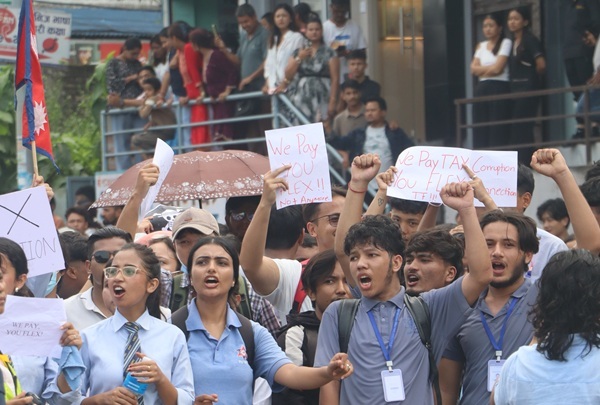.png)

By BasisPoint Groupthink
Groupthink is the House View of BasisPoint’s in-house columnists.
September 13, 2025 at 11:27 AM IST
The Securities and Exchange Board of India has decided that India's capital markets need to mature, and sometimes maturity requires making tough choices about who gets the best seats at the table. The regulator's new approach, announced on September 12, covering minimum public shareholding and foreign investor access, signals that long-term money matters more than keeping everyone equally happy in the short run.
For years, India's stock markets were stuck in Catch-22. Imagine a company valued more than ₹1 trillion wanting to go public. The rules forced such companies to sell a large initial stake, which in the market often found difficult to absorb.
This is exactly why Reliance Industries’ subsidiary Reliance Jio Infocomm, one of India's most anticipated IPOs remained on hold for years. Investors kept asking when Jio would finally list its shares, and year after year, the answer was “soon” because the regulatory requirements made it practically impossible.
SEBI's solution feels almost embarrassingly obvious now that someone has finally implemented it. Companies valued more than ₹5 trillion now only need to sell just 1% of their shares initially instead of 5%. They also get a decade to gradually increase public ownership to the required levels.
Now, critics will argue that this seems to favour big corporations over ordinary retail investors, and they are not entirely wrong. But, the earlier system wasn't helping retail investors either. It just kept them locked out of world-class companies whatsoever. Surely having a smaller slice of excellent businesses, is better than having no access at all.
Perhaps the most interesting part of SEBI's reform package is the Single Window Automatic and Generalised Access for Trusted Foreign Investors framework, or SWAGAT. This framework creates a fast-track immigration system for the kind of foreign money that India wants to attract.
Not all foreign investment is equal, and SEBI has finally acknowledged that. When Norway's Government Pension Fund or Singapore's GIC wants to invest in India, they do not disappear at the first sign of trouble. Under the new system, these trusted investors get 10-year registration validity instead of the standard three years, and can invest through multiple routes without duplicating paperwork.
The timing couldn't be better either. Foreign investors have pulled out nearly ₹975 billion from Indian markets this year, partly due to global economic uncertainty. SWAGAT offers a mechanism to attract institutional money that doesn't panic during market turbulence but instead sees volatility as an opportunity to invest more in India's long-term growth story.
Creating Room
Beyond the headline-grabbing IPO reforms, SEBI has implemented dozens of smaller improvements that make India's capital markets more sophisticated and accessible. The regulator has expanded the anchor investor quota in IPOs from one-third to 40%, specifically creating space for life insurance companies and pension funds to participate alongside traditional mutual funds.
This might sound technical, but it's quite significant. For a large IPO, a diverse group of sophisticated anchor investors provides stability and credibility that smaller retail participation cannot match.
SEBI also approved the creation of a new category of Alternative Investment Fund schemes exclusively for accredited investors. These funds have been exempted from some norms related to documentation and have a lower minimum investment threshold limit.
The regulator also reclassified Real Estate Investment Trusts as equity instruments from hybrid securities, which will allow mutual funds to invest more freely in the asset class. Similarly, higher participation in REITs and Infrastructure Investment Trusts has been facilitated by widening the definition of strategic investors to include qualified institutional buyers, select family trusts, and registered non-banking financial companies.
Of course, announcing reforms and actually implementing them successfully are two different challenges. SEBI has given itself six months to roll out the SWAGAT framework, which reflects caution. Any technical glitches or delays could undermine confidence precisely when global sentiment towards emerging markets remains fragile.
The regulator has also had to strike a delicate balance. Making life easier for large corporations and institutional investors means that retail investors get a relatively smaller piece of the pie, at least in the short term. But SEBI is betting that deeper institutional participation will ultimately create more opportunities for everyone, including retail investors, who will benefit from having access to higher-quality companies and a more robust market infrastructure.




